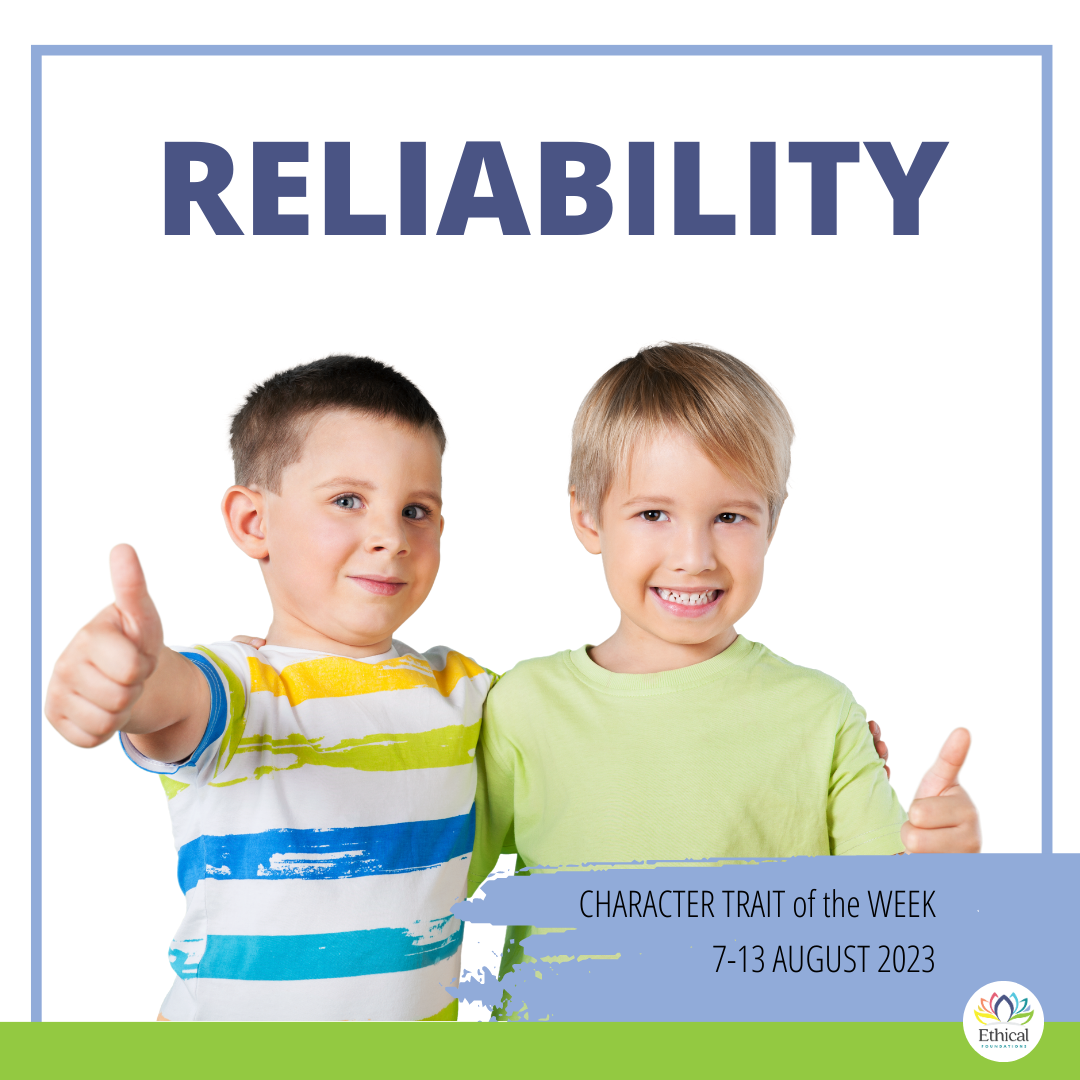07 Aug Reliability
Instilling Dependable Behaviour
Raising a child to be reliable by instilling dependable behaviour is best done in the foundational years, just like every other ethical behaviour you hope to teach your child.
To aid your child’s growth and transformation, as they grow and become an adult who makes positive contributions to the world, it is imperative to generate ethical foundations within them.
Encouraging small everyday actions from a young age can impact the world extensively. It’s the butterfly effect.
The only problem is that you are your child’s role model. Teaching your child reliability means being reliable yourself. Children are brutally honest.

If you want your child to b reliable, you have to show them how to do this because children let you know if what you say and do is different.
Here are three (3) ways reliability benefits your child:
1. Building trust – knowing that someone will turn up when they say they will help a child learn to feel secure and confident in the reliability of that person. Knowing they can rely on someone to turn up when they say they will bring stability to a child’s life.
2. Reduces anxiety – when a child or adult can rely on someone showing up when they expect them to, it helps a child to learn about reliability. A child is provided with a sense of security when they know what, or who, to expect at any given circumstance or situation, for instance, anticipating a parent or grandparent to pick them up from school or accompany them to a weekly sporting event.
3. Self-worth – a child’s self-worth flourishes when they recognize their peers perceive them as dependable and dedicated to meeting their obligations. When a child realizes they are a source of reliability for others, a profound sense of achievement settles in.
Many parents have difficulties setting and sticking to establishing boundaries. Setting boundaries is another way of helping children learn about reliability.
Boundaries come with outcomes, serving as an additional means for a child to experience a sense of security.
When a boundary isn’t adhered to, there’s a distinct anticipation of the subsequential outcomes.
Valuing established boundaries is discovered as a child comprehends the reasons behind setting them and the implications of crossing them.
As your child grows and you create different age-appropriate boundaries, such as making contact if they are not going to make it home at the agreed time, a new guideline is more likely to be accepted and respected, which not only brings your child a sense of security but you also.
Everyone benefits from establishing ethical foundations in their child – the child, the parents, the family and the world.

Sorry, the comment form is closed at this time.